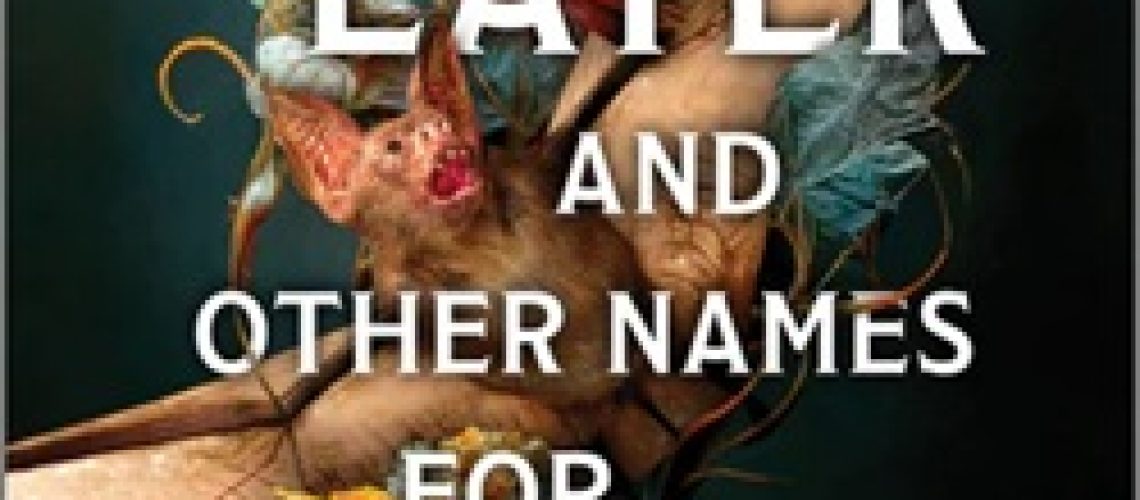Given its title, Bat Eater and Other Names for Cora Zeng, by Kylie Lee Baker, is (of course) about the COVID pandemic in New York City, at its height in 2020. It’s also about people’s struggles during times of great disruption, about people’s tendencies to find racial and national scapegoats to blame during crises, and more specifically, about one woman’s struggles to survive and to figure out who she is at heart. It’s also about mental illness, and being haunted by memories and more, and about investigation, and revenge, and in the end, a kind of mercy. It sounds like it would be a downer, and it is indeed horrific and very depressing in parts, but it’s also gripping, active, exciting, sometimes very funny, loving, and hopeful. It’s like nothing I’ve read, and I highly recommend it for those who can stand the horror and hatred to win through to the positive parts.
Cora Zeng is a very anxious young woman who is basically orphaned, with a Chinese father who left his second wife and two American daughters to move home years ago; Cora’s mother joined a cult and eventually died. Cora was raised alternatively by her half-sister Delilah’s mama, by their father’s sister Auntie Zeng, who paid for half of their college educations and tells of traditions that should be respected, and by Cora’s Auntie Lois, who pays for half of Cora’s student loans each month (for an art degree that went nowhere) as long as Cora attends her Christian church on Sundays. Cora relies on her beautiful, confident half-sister Delilah for stability, but she tragically and terrifyingly loses her early on in the book, in April 2020.
By August, Cora is supporting herself as a crime scene cleaner, a job that oddly suits her germaphobic self very well, as she is quite used to sterilizing herself and her environment as far as possible (but not TOO far, as Auntie Zeng monitors her stability), and she finds satisfaction in making things clean and orderly again. It’s disturbing that so many crimes that they encounter are murders of Asians, but that’s probably just their surviving relatives choosing to hire an Asian-owned cleaner, right?
Cora tries to live within reasonably normal parameters, but she doesn’t have friends. She does force herself to socialize with her co-workers sometimes, to try to approach normality, and so after things start to get really weird, she finds herself opening up to them, and eventually relying on them.
First, they start finding bats at the Asian murder scenes they’re cleaning up (Asian, not just Chinese, since racists don’t always distinguish carefully between Koreans, Japanese, Filipinas, other Asians, and Chinese), which is an obvious signal that the killer(s) blame the victims for the pandemic, because of “wet markets” allegedly spreading the virus. Secondly, and more disturbingly, Cora finds things missing and moved around at her apartment, and hearing things, and eventually comes to believe that she’s being haunted, possibly by a hungry ghost. Her Auntie Zeng has been trying for a long time to get Cora to participate in ghost-appeasing rituals, such as burning joss paper, but Cora has resisted doing that because she believes Delilah is gone, and Zeng’s beliefs just bring up memories that hurt her.
Finally, afraid that she’s either completely losing her grip on her sanity, or that she’s ultimately going to be attacked by ghosts, she takes her worries to her co-workers, and is amazed to actually find some support. Moreover, it seems that the ghosts may be trying to leave clues to help solve their deaths. But with the investigations they’re beginning, Cory and her … friends? … may be exposing themselves to even more danger, and not just from the spiritual side.
This book is full of anxiety and suspense, terror, and heartbreak. So it’s certainly a tough read from that perspective. And given that the pandemic that takes up so much of the beginning of the book, and persists throughout it, is still with us today, it can be grim reading. Even grimmer is the fact that the hatred and blame of The Other (or Us, if the reader is Chinese or even just Asian) that are huge factors in the plot still persist now, and are even worse in some ways.
However, it’s also a very hopeful book in some ways. Cora persists, through all her internal and external challenges, and learns that there are some allies she can indeed trust. She finds an inner core of strength that she hadn’t believed she held, and although she doesn’t manage to right the world’s wrongs, she does take some direct action that provides some satisfaction, and she starts to find some things to value in her current life, instead of just enduring it. She finds ways to honor some memories. She’s even beginning to believe she may be able to find some dreams to work toward.
So, this book definitely isn’t for everyone. But for the people it’s for, it’s absolutely great. I think Bat Eater and Other Names for Cora Zeng is absolutely wonderful.
Content warnings: Murder, gore, violence, racism against Asians, pandemic, social pressure, family coercion, mental illness, sewer explorations.
Disclaimer: I received a free eARC for review from the publisher via NetGalley.







